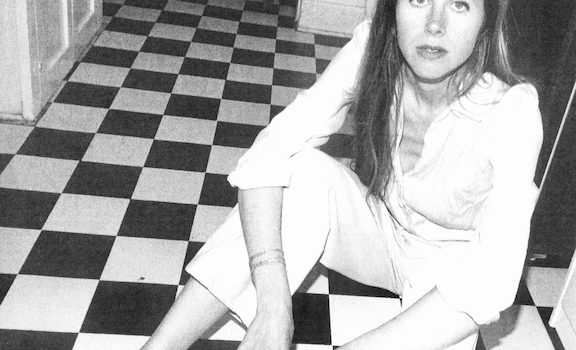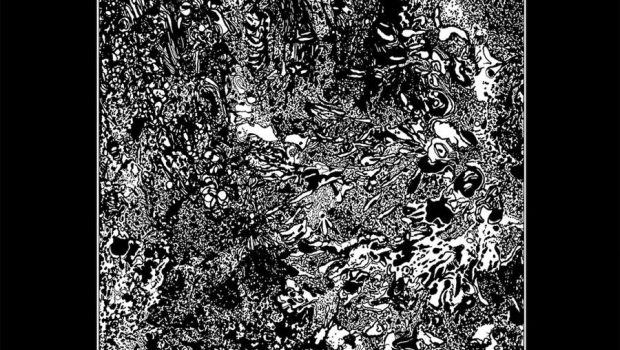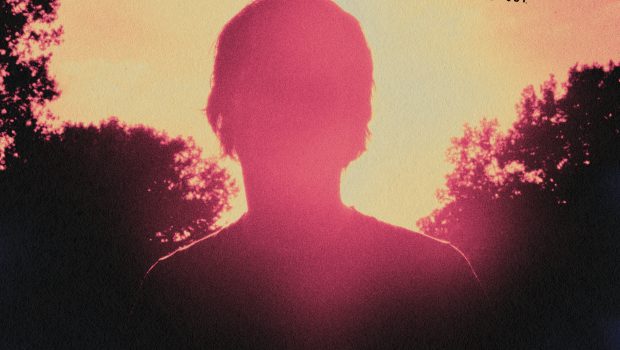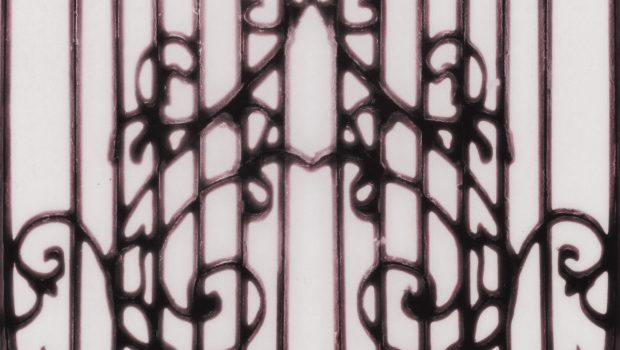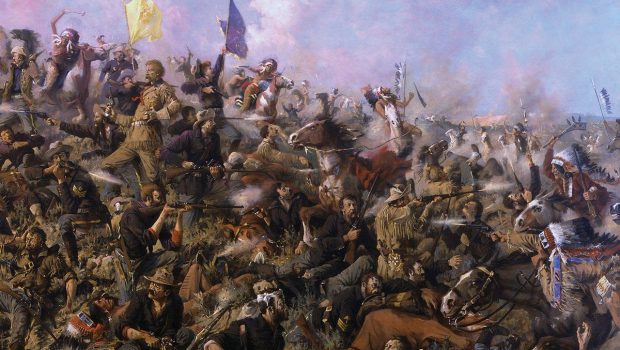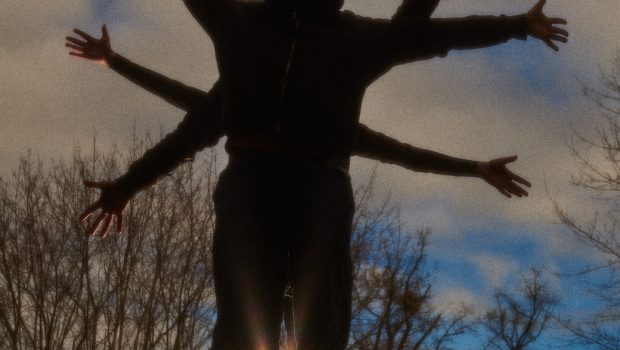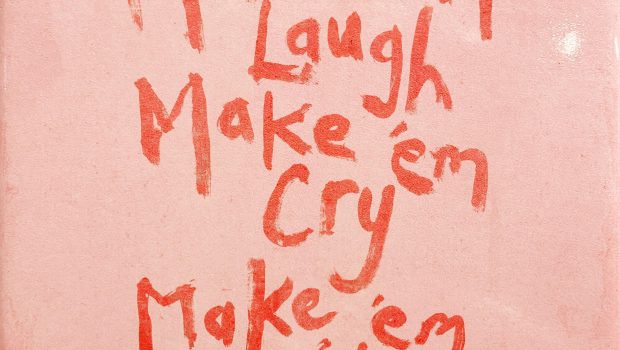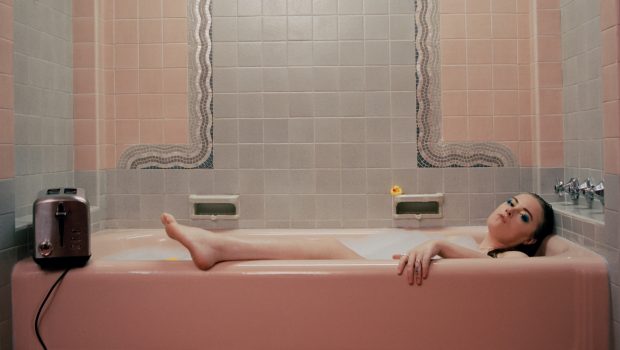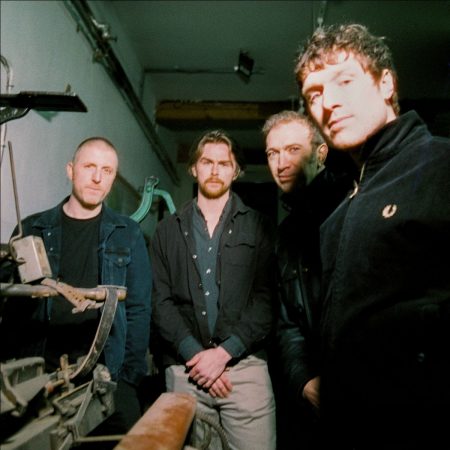 Comprising of former members of The Fall, plus other noted musicians from Lancashire and Yorkshire, Imperial Wax create a heady post punk sound which brims with both angst and optimism, resulting in an astounding second album, ‘Transquiliser’. We caught up with Sam Curran (guitars/vocals) Pete Greenway (guitars), Kieron Melling (drums) and Shane Standrill (bass) to find out more:
Comprising of former members of The Fall, plus other noted musicians from Lancashire and Yorkshire, Imperial Wax create a heady post punk sound which brims with both angst and optimism, resulting in an astounding second album, ‘Transquiliser’. We caught up with Sam Curran (guitars/vocals) Pete Greenway (guitars), Kieron Melling (drums) and Shane Standrill (bass) to find out more:
Your brilliant second album is called ‘Tranquiliser’, where did that title come from?
Sam – So, it was taken from the song of the same ‘Tranquilliser’. That song has a sort of general theme about an overburdened horse who’s constantly demanded more off till its eventual break. Carrying other people’s stuff and expected to carry more and keep going kind of thing. Other people’s burden I try liken to a horse tranquilliser. It’s a fairly cliche metaphor for life. I hate going to back and explaining lyrics, it’s like trying to remember what food you ate that made that giant shit you had 18 month ago.
‘Burning In The Water’ and St Cavell’ both have a great psych rock feel, almost surf rock in places, did you intentionally set out to have a psych rock sound or was it more a happy accident when you started writing for this second album?
Kieron – Thanks! No, we don’t intentionally try to write in a style but adding Pete’s guitar parts usually gives a slight surf/cowboy feel. So yeah, I guess it’s a happy accident.
What do you think you have built on from your time in The Fall and carried forward into Imperial Wax?
Pete – The Fall had a momentous work ethic which meant that we were always looking forward to the next LP/EP/tour. There was no sitting about waiting for things to happen. This is the attitude that we applied to Imperial Wax. Unfortunately, we have had a quite a few setbacks in the last three years, with Dave having to leave and my ongoing issues with long covid, we have really had to push through to get this LP recorded and released.
The songs for ‘Tranquiliser’ seem to have emerged from experiments in the rehearsal rooms with things falling into place quickly, was this the case, or did various band members bring more fully formed songs into rehearsals for this album?
Kieron – This album is an unusual way for us to work. We normally all get in the room together and use ideas from each of us melting it all up into a song. With the lockdowns making this impossible, only Sam and I were able to get together. It’s just what came out with only guitar and drums. We sent Pete the tunes so he could make his parts and Shane also came up with fresh bass lines after Dave’s departure!! The songs evolve and change direction when each person adds their parts.
Was St Cavell inspired by the First World War nurse, Edith Cavell and her mission to treat the injured from both sides without discrimination, and if so, how did you hear about her and what does she mean to you? If not, who inspired that tune?
Sam – It was indeed. I was reading Henri Cherrier‘s ‘Papillion’, and I got to the point where he just arrives at Devil’s island, to quote the book – “I also saw the sod who’d had Edith Cavell shot, the English or Belgian nurse who’d saved the English airmen in 1915.” So, I decided to have a look into Edith Cavell. Edith Cavell was a British nurse who impartially treated wounded soldiers on both sides. She also helped 200 allied troops escape and was later executed by a German firing squad. Her death was made an example of and used as one of the most successful propaganda led recruitment campaigns in Britain. I remember thinking how ironic it was.
The music came before the lyrics which had this sort of militant feel to it which coincidentally fitted to my lyrical ideas. ‘St Cavell’ is a fictional firsthand account of a young soldier at the battle of Somme who’d enlisted himself after the Edith Cavell propaganda campaign. At first, he’s proud to serve but anxious to impress, but after being bombarded by German artillery and the death of his father he realises how hopeless the situation is.
Lyrically, I’ve read that you were inspired by the great writer Joseph Conrad amongst others, what is it about his work which sparked the idea for a song?
Sam – I read the ‘Heart of Darkness’ by Conrad towards the end of the writing process for Tranquilliser, it really helped see the last couple of songs over the line. It’s very difficult writing 11 songs worth of lyrics all at once, reading alongside writing is an invaluable aid. I particularly liked the character ‘Kurtz’, who I reference in the song ‘Under Your Wings’ as an example of someone not to be trusted. Kurtz is an ivory dealer who is working far up the Congo and who has apparently ‘gone native’. His reputation precedes him throughout the book until the very end where you actually meet him and discover the full extent of his madness is far worse than expected. He believes himself to be some sort of god like leader of the tribes surrounding his post and ambushes his colleague, the main protagonist, Marlow. We all know a Kurtz in some form or another, I’ve certainly had my run-ins with them. He makes a good example for the narcissist with a messiah complex.
Growing up in Lancashire and Manchester who were your inspirations either musically or non-musically?
Shane – Well, I grew up on the Yorkshire/Lancashire border, exposed to a variety of influences from family and those around. Some of my earliest memories include going to see brass bands with my Grandad who lived around Saddleworth at the time. I was brought up listening to all sorts, blues, swing and big band through to nu-wave and post punk. Growing up in a small town, it made it seem that more precious when new music was discovered, as it’s not as accessible when you’re younger and not yet connected to the internet. I was introduced to the public house environment from a young age, the characters and music there definitely left a creative impression. I’ve been fortunate to see many credible musicians play on my doorstep as a young lad, at the time I probably didn’t know, but now I can say it had a big impact on my musical pursuits. Hamish Imlach and Lazy Lester being highlights.
When did you realise you wanted to be a musician full time and if you weren’t doing music full time what job would you probably be doing?
Kieron – I’ve always wanted to be a musician for as long as I can remember. My Dad was and still is in a band and had a record shop, so I’ve grown up with it all my life. I’ve always worked alongside playing music. While in The Fall I was also metal engineering when not on tour. I’ve had my own recording studio and do painting and decorating to pay the bills. That’s the real world unless you’re a trust fund kid.
When you’re writing, do you just record on to your phone or do you go old school and use a 4 track, and then how does it develop?
Pete – I’ve used 4 track porta studios, back in the day, then moved onto various computer programs. What I found out, much too late, but whilst in the Fall, that musicians don’t like to be told what to do, and music gets far more interesting when band members are free to do whatever they feel. We usually just bring small ideas, recorded on our phones, and let the songs develop through rehearsal or recording process.
You’ve released the album on your own label Guesswork Records. What has been the best and worst elements of running your own label?
Kieron – The best part about running our own label has got to be having full control over everything we decide to do. All the money a band will pay out to record and make a deal with a smaller label, you never see a penny back. This way all the money comes back to the band, so we use that to get back in the studio, get more merch etc. it makes sense! It has been a giant learning curve and being thrown in at the deep end we had to learn fast. We have come up against a few snags, but we know for next time what has worked and what to change. One being the Post Office and attempting to post 80 records in one go. If you want to see 20 pissed off pensioners queueing out of the door, give it a go!
You’re gigging again soon and have all toured extensively in other bands too. What are the best and worst elements of touring?
Pete – Aside from the actual gigs, which are always a pleasure and a privilege to do, touring is a great way to meet interesting folk. Being on tour is similar to being with your mates for not just a night in the pub, but for a whole week (or so), everyone should try it. Those 3am post gig hotel shenanigans are some of the most hilariously fun moments I’ve ever had. Unfortunately, it is very difficult, almost impossible for a small independent band to tour the UK without costing more money than you could possibly make. You cannot make a living from playing in a band anymore and now it’s turned into an expensive hobby.
You’re playing Manchester’s Fair Play Festival on 6th April, any plans for more gigs this year, what’s next for Imperial Wax?
Shane – There’s a couple of festival slots coming up over Spring and Summer. SeekOut Festival in the Ribble Valley and Right to Roam in Bolton are next, with some news on a UK tour and potential Euro dates to be announced.
Imperial Wax: Tranquiliser – Out Now (Guesswork Records)
Imperial Wax Live:
Fair Play Festival – Saturday 6th April 2024
Right To Roam Festival – Bolton: 5 – 6 July 2024
SeekOut Festival – Gisburn Forest, 24 – 25 July 2024


